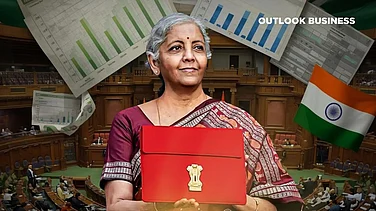Finance Minister Nirmala Sitharaman has stated that the interim budget which will be presented on 1 February will just be a vote on account. The government will seek the vote of the parliament for a part of the expenditure needed till the next government takes oath.
While the interim budget will have allocations for central ministries, departments and schemes, it will also reveal the revised estimates of the expenditure incurred in the current financial year. With this being the last budget of second tenure of PM Modi-led government, observers are keen to see whether there will be any "spectacular announcements".
The government has been on a spending spree this financial year in the infrastructure segment as the capex budget has seen a 33 per cent surge. A large portion of the capex budget has went into the construction of railways and roads in the last few years.
Moreover, the budget of the last five years show significant changes of how the money was allocated to different schemes and ministries.
Allocation To Ministries And Schemes
Looking at the data for the actual expenditure of the financial year 2019-20 and the budget estimates for this financial year, one of the biggest rise in allocation has been seen in the funds for ministries of railway and roadways.
At a time when the country has seen push for capex, the role of the ministries have increased which is reflected in the over 200 per cent hike in its budget over the last five years.
Along with these, the Ministry of Defence continues to attract the most fund allocation where a large portion is dedicated to the payment of pensions.

When it comes to schemes, PM Awas Yojana, PM Kisan Yojana and MGNERGS have remained the key spending programmes in rural areas along with the spending on Jal Jeevan Mission.
While MGNERGS has seen a substantial decline in allocation in the last five years, Modi government's flagship schemes continue to attract attention.

While the allocation has been in focus, recent reports over surrendering of funds by the Ministry of Agriculture stirred a controversy over the use of public money.
Savings After Expenditure
The finance ministry often asked departments and ministries to return the money which remained unutilised during the financial year. An official memorandum was issued a couple of years back which laid the rules for the surrendering of funds.
An Indian Express report recently showed that agriculture ministry surrendered over Rs 1 lakh crore in the last five years. The standing committee on agriculture had also noted that the government should stop this practice of surrendering funds.
Comptroller and Auditor General (CAG) of India noted in one of its reports that departments and ministries asked for supplementary funds which eventually were not used.
In its report for the financial year 2021-22, the CAG found that the several departments, which include home, land revenue and agriculture, had significant savings after asking for supplementary funds. In case of home, the department had saved Rs 52.78 crore while agriculture saw savings of Rs 61.11 crore in FY22 despite demanding extra funds.
The CAG's report noted the reasons for this. It said, "This was mainly due to non-receipt of expenditure sanction from Government, non-release of funds by GoI, non-approval of expenditure by Finance Department, limitation of official tours due to COVID-19 pandemic and non-filling of vacant posts."
While the exact data for ministry-wise savings isn't available for this financial year, the revised spending figures for FY24 and the allocation for departments and ministries for the next financial year will become clear on 1 February.
































